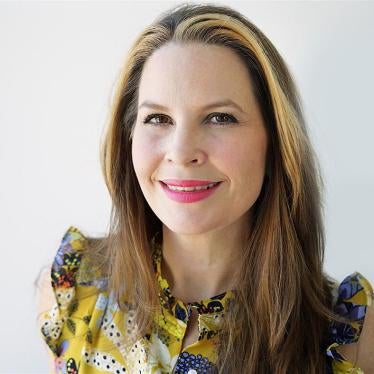The approaching one-year anniversary of the London Olympics is a reminder that change is possible, even in countries that have long resisted it. Last July in London, Saudi women took part in the Olympic Games for the first time. Their breakthrough threw a spotlight on the barriers for women trying to play sports inside the kingdom and on the harmful social, educational and health effects of denying sports to half the country’s population.
Wujdan Shahrkhani competed in judo at the 2012 games and Sarah Attar in track and field. The International Olympic Committee hailed the change, with president Jacques Rogge calling it “a major boost for gender equality.”
But the two Saudi women had only had weeks to prepare and hardly competed on a level playing field. The Saudi National Olympic Committee ordered them to dress modestly, have their male guardians’ approval, and not mix with men. The two women were quickly eliminated from competition, but entered the history books.
This month, there was another possible breakthrough in the kingdom's effective ban on sports for women and girls. The official Saudi Press Agency announced that students enrolled in private girls’ schools could take part in sports so long as they wear “decent clothing” and are supervised by female Saudi instructors within the Education Ministry’s strict regulations.
Some girls’ private schools are already allowing sports, and it is possible that the ministry’s announcement merely seeks to regulate an existing practice. It also reflects the kingdom’s back-and-forth on reforms for women’s rights. Earlier this year, the Saudi daily Al-Watan reported that the government would license women’s sports clubs for the first time—but a government official quickly denied the report.
The openings on sports are important because Saudi Arabia’s strict gender segregation and male “guardianship” policy have long kept women on the sidelines. As Human Rights Watch documented in the report “Perpetual Minors,” this policy and strict gender segregation limit women’s ability to take part in public life. Male “guardians” for women of all ages can approve or reject their travel, marriages, ability to conduct official business, and even in some cases, their access to health care. Lawyers who seek to defend women suffering from abuse under the guardianship system risk being harassed and chargedwith offenses such as “offending the judiciary.”
Since 2005, King Abdullah has pushed some reforms, including recent modest advances for women such as measures to combat domestic violence, and licensing a female lawyer. Today, more than 60 percent of the kingdom’s university students are women, but many are still unable to enter the workforce.
Sports for Saudi girls in schools will have a lasting impact on their empowerment, education and professional opportunities. Doing away with the ban on sports will allow a generation of girls to compete and to work within the kingdom to pull down hurdles.
Now that the door is open to private school students, the Saudi Education Ministry should announce a long-promised national strategy to promote sports for girls in public schools and at all levels of education, both public and private. Women should be appointed to seats on national sports bodies.
The International Olympic Committee has a key role to play. Saudi Arabia remains in clear violation of the Olympic Charter’s ban on gender discrimination (Afghanistan was banned from past Olympics for just such practices). Athletes prepare for the Olympics years in advance, and in order not to be banned from the 2016 Rio de Janeiro Games, Saudi officials need to start preparing now.
With a Saudi prince sitting on the International Olympic Committee, this body is uniquely positioned to push Saudi sports leaders to conform to the principles of the Olympic movement by establishing a timeline and benchmarksfor introducing physical education for girls in both public and private schools.
A Saudi cleric once tried to shut off debate on the subject by saying that opening sports to women would be “steps of the devil.” But times have changed, perhaps even in Saudi Arabia.
Despite governmental, religious and social hurdles, Saudi women and girls are increasingly braving the state’s restrictive rules to play sports. It is time for the Saudi government and the global sporting community to back them up and finally give them the chance to play.
----------
Minky Worden (Twitter @MinkysHighjinks) is the director of global initiatives for Human Rights Watch and the editor of She is the editor of The Unfinished Revolution, on rights for women and girls around the world. She serves on the advisory board of TrustLaw’s TrustWomen conference.







